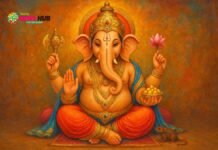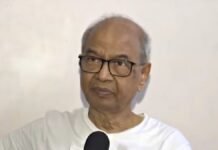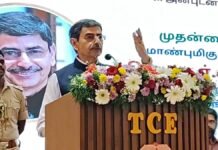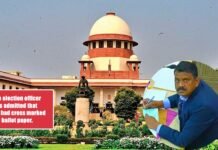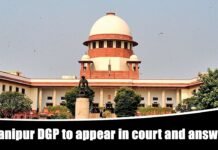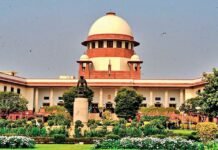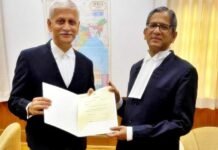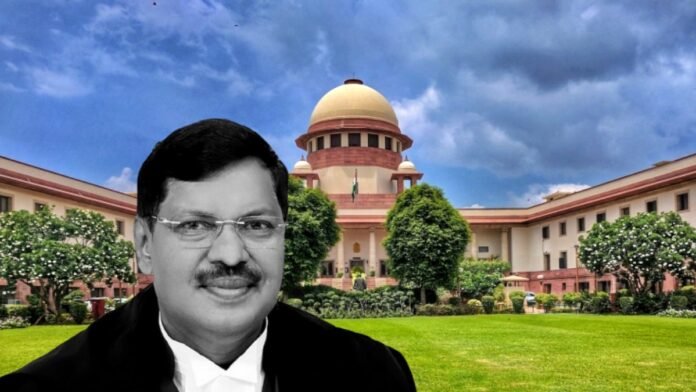
Key Points
- Justice B.R. Gavai has been sworn in as the 52nd Chief Justice of India, becoming the first Buddhist and only the second Dalit to hold the post.
- President Droupadi Murmu has referred 14 constitutional questions to the Supreme Court, challenging its authority to set timelines for governors and the President on bill assent.
- The Supreme Court’s recent landmark judgment in the Tamil Nadu Governor case set strict timelines for governors and the President to act on state bills, sparking a constitutional debate.
- The new CJI faces immediate challenges in balancing judicial review, federal structure, and the extraordinary powers under Article 142.
New Delhi: Justice Bhushan Ramkrishna Gavai was sworn in as the 52nd Chief Justice of India (CJI) on May 14, 2025, at a ceremony in Rashtrapati Bhavan, administered by President Droupadi Murmu. Justice Gavai, born in Amravati, Maharashtra, is the first practising Buddhist and only the second Dalit to lead the Indian judiciary. He succeeds Justice Sanjiv Khanna and will serve until November 23, 2025. His legal journey began in 1985, with significant experience in constitutional and administrative law.
2. President’s 14 Questions: Can the Supreme Court Set Timelines for Governors and the President?
President Droupadi Murmu has invoked Article 143(1) of the Constitution, seeking the Supreme Court’s opinion on 14 critical constitutional questions[4]. The most pressing: Can the Supreme Court impose deadlines on the President and governors for assenting to bills, especially when the Constitution itself does not specify such time limits? The President’s reference comes after the Supreme Court’s April 8 verdict in the Tamil Nadu Governor case, which mandated strict timelines for decision-making on state bills.
3. Landmark Tamil Nadu Governor Case: Supreme Court Asserts Judicial Review and Timelines
The Supreme Court’s historic ruling addressed a prolonged standoff between the Tamil Nadu government and Governor RN Ravi, who had withheld or delayed assent to several state bills. The court declared such inaction unconstitutional, holding that neither the President nor governors have “unbridled powers” or the right to exercise an absolute veto. The judgment established:
- Governors must act within three months on bills sent for assent or for Presidential consideration.
- If a bill is re-enacted by the state legislature, the governor must grant assent within one month.
- The same timelines now extend to the President’s office, a first in Indian constitutional history.
- Both the President and governors must provide written reasons for withholding assent, subject to judicial review.
The court justified its authority by referencing earlier cases and recommendations from the Sarkaria and Punchhi Commissions, emphasizing that “no exercise of power under the Constitution is beyond the pale of judicial review”.
4. Extraordinary Powers and the Role of Article 142
In the Tamil Nadu case, the Supreme Court invoked Article 142 to “deem” 10 pending bills as having received assent, given the governor’s prolonged inaction and lack of bona fides. This use of extraordinary powers has sparked debate, with critics-including some governors and the President-raising concerns about judicial overreach and the balance of power in India’s federal structure.
5. What Lies Ahead for CJI Gavai
CJI Gavai’s immediate challenge is to constitute a Constitution Bench of at least five judges to address the President’s 14 questions[4]. The outcome will have far-reaching implications for the relationship between the judiciary, executive, and legislature, especially regarding the federal balance and the scope of judicial intervention in constitutional functions.
Justice B.R. Gavai’s tenure as Chief Justice of India begins at a pivotal moment, with the judiciary and executive at odds over the Supreme Court’s authority to set deadlines for constitutional heads on bill assent. The President’s unprecedented move to seek the court’s opinion on 14 constitutional questions will test the boundaries of judicial review, federalism, and the extraordinary powers under Article 142, setting the stage for a defining chapter in India’s constitutional history.























